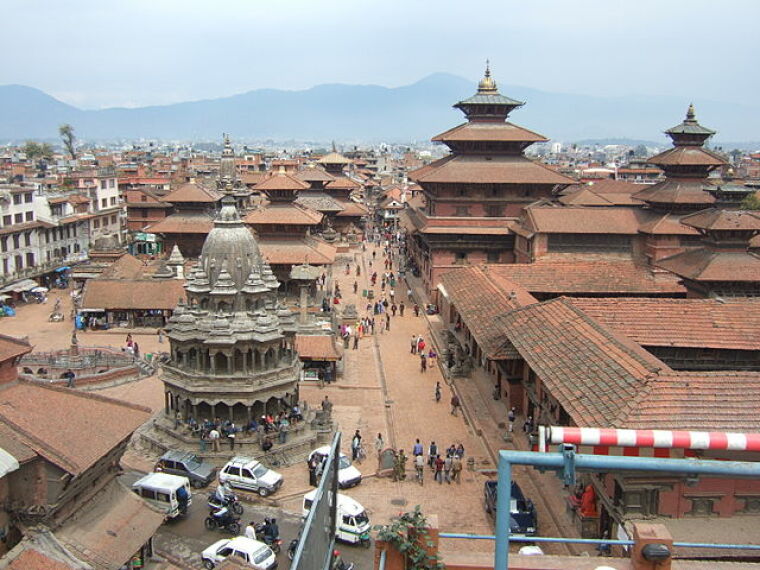Nepalese Christian leaders demand repeal of law criminalizing evangelism and conversions

Christian leaders have launched a petition calling on the Nepalese government to repeal a new law that prohibits evangelism and religious conversion.
Christian Solidarity Worldwide (CSW) reported last month that Nepali President Bidhya Devi Bhandari had signed a Criminal Code Bill that includes a provision that outlaws religious conversion and the "hurting of religious sentiment." The bill was reportedly signed into law on Oct. 16, the same day that Nepal was elected by the U.N. General Assembly as one of 15 new members of the U.N. Human Rights Council.
C.B. Gahatraj, president of the Christian Federation of Nepal, warned that the new law targets religious men and women who want to evangelize and share their faith.
"Christians have been cheated in the past with assurances that have never been put into practice. We are not just going to be used as vote banks as in the past," he said, as reported by The Christian Post, citing Asia News.
"We demand an immediate amendment to the law to ensure freedom of conversion and choice. Everyone is free to choose their faith and practice it," he added.
There had been concerns that Clause 160 in Section 9, the provision of the new law that bans religious conversions, could be used to limit a wide variety of religious expression and belief. Some have feared that the clause could be used to claim that the charitable activities of religious groups or people talking about their beliefs are attempts at conversions.
CSW and other human rights groups have warned that the new law could send believers to prison for up to five years if found guilty of forcefully converting people.
"The new law didn't come unexpectedly," said Rolf Zeegers, analyst at Open Doors' World Watch Research unit.
"When Nepal became a secular state in 2008 Christians in the country experienced a huge increase in freedom. Christianity flourished and grew rapidly, tripling in size between 2008 and 2017 – this to the anger of Hindu radicals who have tried constantly to restore religious freedom restrictions ever since. One of their greatest achievements was the inclusion of article 26 [criminalising religious conversion] in the country's September 2015 constitution," he went on to say.
Dinesh Bhattarai, advisor to Prime Minister Sher Bahadur Deuba, had reportedly promised to address the Christian community's concerns over religious freedom before the parliamentary and provincial elections, which are scheduled for Nov. 26 and Dec. 7, respectively.
Deuba has vowed that secularism will be more institutionalized and the rights of minorities will be protected in order to ensure the success of the elections.
Some reports have noted that the growth of Christianity in Nepal is among the highest in the world.
Some critics attribute the growth to the lure of money from foreign evangelical organizations, but anthropologist Ian Gibson refuted the theory, noting that the majority of those who converted have "lost far more than they have gained" by adopting Christianity. He noted that they often experience discrimination in employment and are typically ostracized from their families and communities, and even disinherited.
 Christians don't have to affirm transgenderism, but they can’t express that view at work: tribunal
Christians don't have to affirm transgenderism, but they can’t express that view at work: tribunal Archaeology discovery: Medieval Christian prayer beads found on Holy Island
Archaeology discovery: Medieval Christian prayer beads found on Holy Island Presbyterian Church in America votes to leave National Association of Evangelicals
Presbyterian Church in America votes to leave National Association of Evangelicals Over 50 killed in 'vile and satanic' attack at Nigerian church on Pentecost Sunday
Over 50 killed in 'vile and satanic' attack at Nigerian church on Pentecost Sunday Ukrainian Orthodox Church severs ties with Moscow over Patriarch Kirill's support for Putin's war
Ukrainian Orthodox Church severs ties with Moscow over Patriarch Kirill's support for Putin's war Islamic State kills 20 Nigerian Christians as revenge for US airstrike
Islamic State kills 20 Nigerian Christians as revenge for US airstrike Man who served 33 years in prison for murder leads inmates to Christ
Man who served 33 years in prison for murder leads inmates to Christ


 Nigerian student beaten to death, body burned over ‘blasphemous’ WhatsApp message
Nigerian student beaten to death, body burned over ‘blasphemous’ WhatsApp message 'A new low': World reacts after Hong Kong arrests 90-year-old Cardinal Joseph Zen
'A new low': World reacts after Hong Kong arrests 90-year-old Cardinal Joseph Zen Iran sentences Christian man to 10 years in prison for hosting house church worship gathering
Iran sentences Christian man to 10 years in prison for hosting house church worship gathering French Guyana: Pastor shot dead, church set on fire after meeting delegation of Evangelicals
French Guyana: Pastor shot dead, church set on fire after meeting delegation of Evangelicals ‘Talking Jesus’ report finds only 6% of UK adults identify as practicing Christians
‘Talking Jesus’ report finds only 6% of UK adults identify as practicing Christians Mission Eurasia ministry center blown up in Ukraine, hundreds of Bibles destroyed: 'God will provide'
Mission Eurasia ministry center blown up in Ukraine, hundreds of Bibles destroyed: 'God will provide' Church holds service for first time after ISIS desecrated it 8 years ago
Church holds service for first time after ISIS desecrated it 8 years ago Burger King apologizes for 'offensive campaign' using Jesus' words at the Last Supper
Burger King apologizes for 'offensive campaign' using Jesus' words at the Last Supper Uganda: Muslims abduct teacher, burn him inside mosque for praying in Christ’s name
Uganda: Muslims abduct teacher, burn him inside mosque for praying in Christ’s name